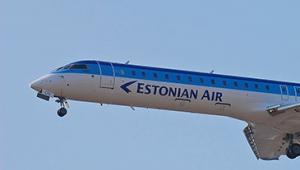NAO head Amayas Morse said DFID is choosing to take action in an increasing number of crises in complex and dynamic environments, and noted such interventions can last for several years.
“Our international experience suggests that it is ‘easier to get in than get out’. It follows that this type of crisis action is likely to represent an increasing proportion of DFID’s budget.”
As DFID responds to an increasing number of crises and spends more doing so, the NAO said it should enhance its framework for managing these interventions, as well as exit strategies where appropriate.
This includes establishing criteria to guide the nature and length of its interventions and prioritise between different crises, gathering data to help identify cost-effective responses and taking into account the impact of costs on funding for other purposes or planned programmes, especially as the report found that DFID’s emergency response tends to transition into longer-term support.
The NAO also found that DFID has yet to identify whether it is deploying the most cost-effective combination of internal and external resources and skills. While an invaluable resource, the NAO noted that contract staff can be expensive when deployed for long periods. DFID currently spends around £6m per year on them.
As well as funding, DFID will often reallocate staff to help respond to a major crisis, again impacting the progress of planned programmes. The NAO said DFID should track and quantify this impact to help it prioritise between future crises and ongoing development programmes.
Another area where value for money could be better guaranteed is in DFID’s work with partner organisations, the NAO said.
The watchdog’s report identified three risks to value for money in this area: DFID is not always able to map where and how money is spent when working with a large number of partners; it often doesn’t have a good understanding of how much funding benefits recipients and how much goes to meeting costs incurred by partners in their delivery of assistance; and the benefits of DFID’s multi-year approach are not always passed on to ‘second-tier’ partners, who have agreements with agencies directly partnered with DFID.
Other issues flagged by the NAO include gaps in DFID’s knowledge when it comes to monitoring the performance of its interventions and its partners and in assessing the impact of its efforts to improve the global humanitarian system.
A DFID spokesperson said: "The NAO is right to recognise the UK's strong track record in humanitarian response. From the Syria crisis to fighting Ebola, the UK has proved itself to be a world leader.
"As the number of complex and protracted crises continues to rise, our work in some of the most dangerous places is not only saving lives but benefitting Britain by building greater stability and security overseas.
"As with all DFID spend, we apply the most rigorous checks to ensure our aid reaches those who need it and achieves the best value for taxpayers' money."













